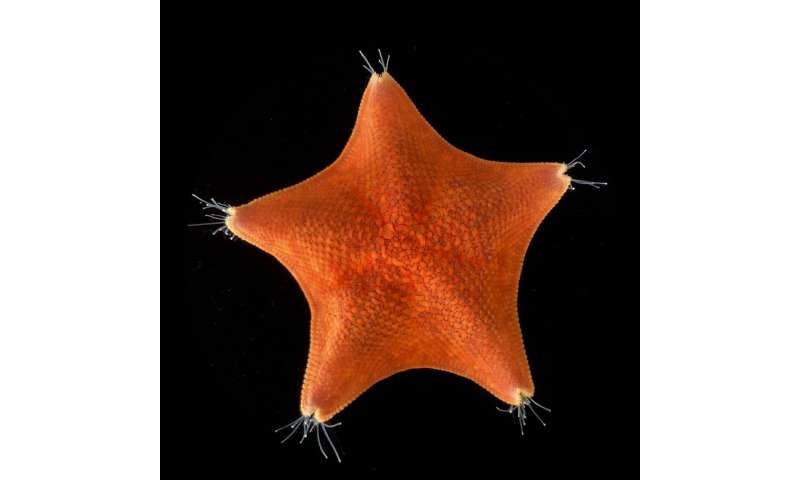Best of Last Week—starfish are all head, an all-analog photoelectronic chip, antibiotics no longer effective

It was a good week for biology research as a combined team of marine biologists from Stanford University and UC Berkeley discovered that starfish are all head—they found very little evidence of gene signatures associated with a torso or tail. Also, a team at Newcastle University, in the U.K., working with a colleague from Constructor University, in Germany, identified the bacterial mechanism for vitamin B12 uptake, possibly paving the way for new research to bolster antibiotics. And a team at Texas A&M's School of Veterinary Medicine and Biomedical Sciences conducted a genome sequencing project that revealed new secrets about cat evolution—such as how they developed their survival abilities.
In technology news, a combined team of engineers from Harvard University and MIT developed an efficient process for making fuel from carbon dioxide by converting CO2 gas to formate. And a team at Tsinghua University, in China, unveiled an all-analog photoelectronic chip that combines optical and electronic computing to achieve ultrafast, highly energy-efficient vision processing. Also, a team of engineers at Western University, in Canada, developed a type of battery that can store 10 times as much energy as conventional batteries. And a team with members from several institutions in China developed a fast-charging hybrid microbial fuel cell and CO2 electrolyzer based on formic acid.
In other news, a combined team of medical researchers from University College London and Dartmouth University found that 1 in 7 people in the U.S. have reported having long COVID as of the end of 2022. Also, another combined team, this one with members from the Autonomous University of Barcelona and The Institute of Cost and Management Accountants of Bangladesh, created the first-ever wireless device able to make magnetism appear in a non-magnetic material. And finally, an international team of medical researchers found evidence that the standard antibiotics used to treat common childhood infections are no longer effective in many parts of the world due to the development of resistance.
© 2023 Science X Network